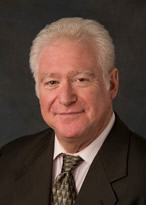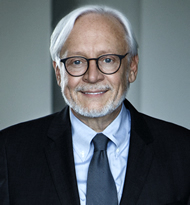ABSTRACT: An independent educational evaluation (IEE) provides parents with an opportunity to obtain alternative sources of information concerning the present levels of performance of their children. Although Congress guaranteed this procedural safeguard for parents in 1975 (P. L. No. 94-142), there have been several alterations of these regulations during the past 25 years. Primary areas of concern include: (a) What is an appropriate evaluation? (b) What are the circumstances in which a public agency must pay for an IEE? and (c) What is the timeline to which local educational agencies (LEAs) and parents must adhere? IDEA '97 included modifications of previous federal regulations on IEEs. This article explores these alterations through a review of administrative decisions, court cases, state regulations, and U.S. Department of Education policy and opinion letters.
A HISTORICAL OVERVIEW OF A CONTROVERSIAL PROCEDURAL SAFEGUARD
With the passage of the Education for All Handicapped Children Act (Pub. L. No. 94- 142) in 1975, Code 300.503, Congress granted parents the right to obtain an independent educational evaluation (IEE) at public expense when they disagreed with the evaluation conducted by the public agency (34 Code of Federal Regulations [C.F.R.] §300.502[b][1]). However, the public agency may initiate a hearing under 34 C.F.R. §300.507 "to show that its evaluation is appropriate" (34 C.F.R. §500.502[b][2]). If "the final decision is that the agency's evaluation is appropriate, the parent still has the right to an IEE, but not at public expense" (34 C.F.R. §300.502[b][3]). Whenever "an independent evaluation is at the public expense, the criteria under which the evaluation is obtained... must be the same as the criteria which the public agency uses when it initiates an evaluation" (34 C.F.R. §300.502 [e][1]). Although most will not need an independent evaluation, IEEs provide an additional opportunity for parent involvement. IEEs can help to ensure that students with disabilities have a free, appropriate public education.
During the past 25 years, parents and their advocates, as well as school personnel, have been concerned about IEEs. For parents, IEEs represent an alternative to school-based evaluations. To school administrators and other district personnel, IEEs can represent a real challenge, both in terms of dissenting opinions and financial expense. It is likely that hundreds of thousands of dollars are spent on IEEs. The potential effects of recommendations from IEEs can be even more costly to districts across the United States.
IEEs are one of the procedural safeguards guaranteed by the Individuals with Disabilities Education Act (IDEA, 1990; amended 1997). Other parental rights are access to records, consent to evaluations, impartial due process hearings, mediation, and participation in decisions about the student (34 C.F.R. §300.500 through .589 [Subpart E]). Despite the important role of IEEs in the special education process, a recent search of the ERIC and PsychINFO databases resulted in three peer-reviewed articles focusing on IEEs (Hepner & Silverstein, 1988a, 1988b; Knoff & Leder, 1985).
Knoff and Leder (1985) urged their intended audience, school psychologists, to help parents make informed decisions regarding the selection of independent evaluators. They listed five areas of concern including that the evaluators (a) are properly certified, (b) have the necessary skills to conduct the assessment, (c) have appropriate training and supervision, (d) will use an acceptable format to report results, and (e) will disclose all fees and specific payment arrangements. The authors created a nightmare scenario of an inappropriate assessment to underscore many of these points.
Hepner and Silverstein (1988a, 1988b) wrote a pair of articles for parents of exceptional children. In the first article (1988a), they sought to reassure parents of their right to seek a second opinion concerning their child's education by providing specific reasons for using an independent evaluator, by presenting criteria for selecting an evaluator, and by offering suggestions on how to create a positive relationship with the evaluator. The second article (1988b) discussed the immediate ramifications of an independent evaluation including the cost of the assessment, the handling of confidential information, and what an evaluation may include. These articles described the complexities of IEEs to inform parents more fully of their rights as defined by Pub. L. No. 94-142. The three articles (Hepner & Silverstein, 1988a, 1988b; Knoff & Leder, 1985) reflected the parents' need for reliable and understandable information concerning IEEs in particular and the entire special education process in general (see Barton, Barton, Rycek, & Brulle, 1984; Roit & Pfohl, 1984).
. . .Continue to read rest of article (PDF).











